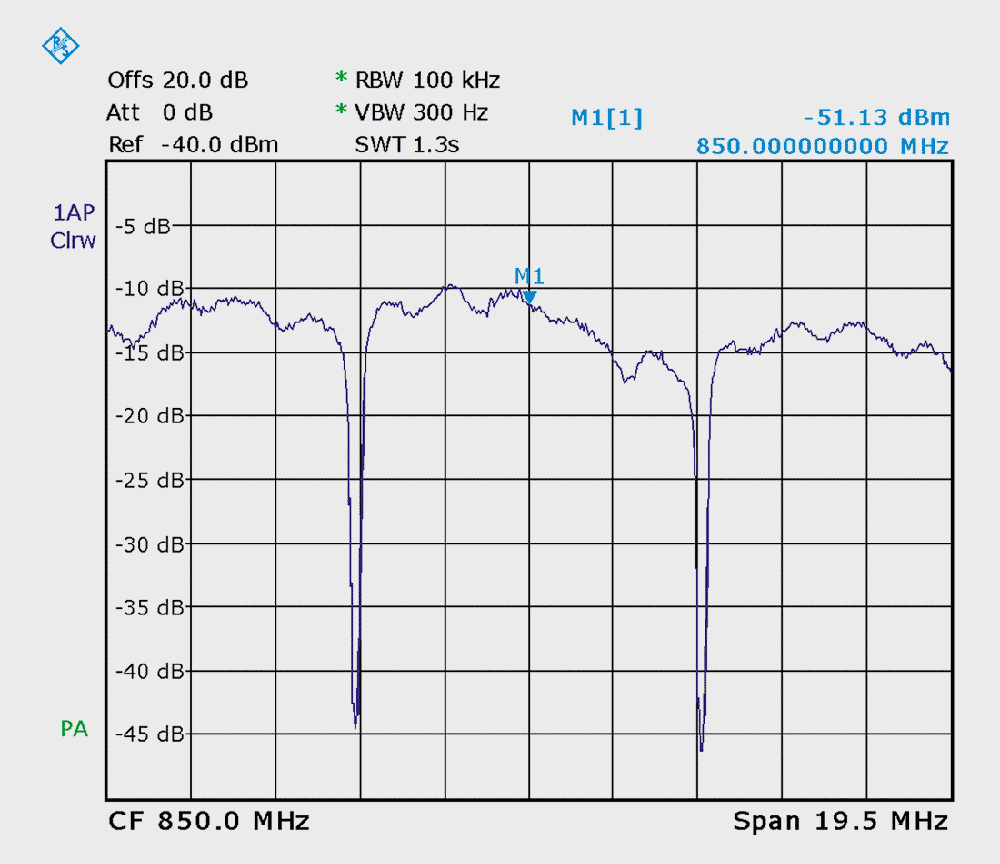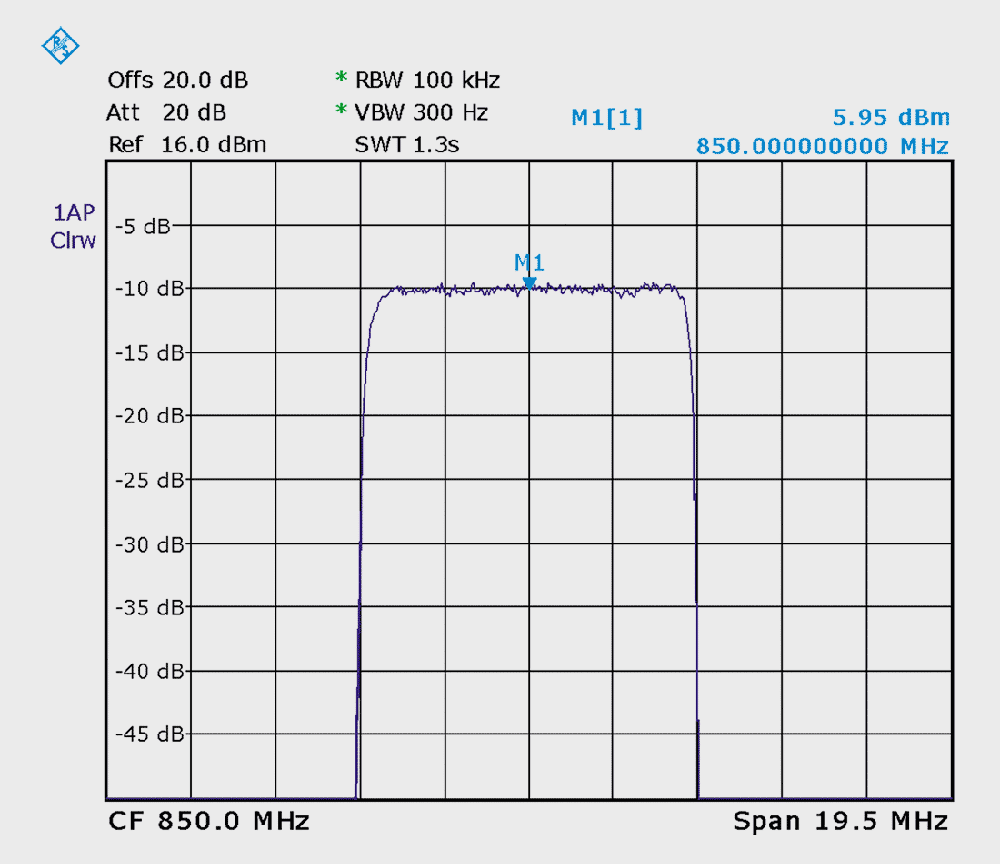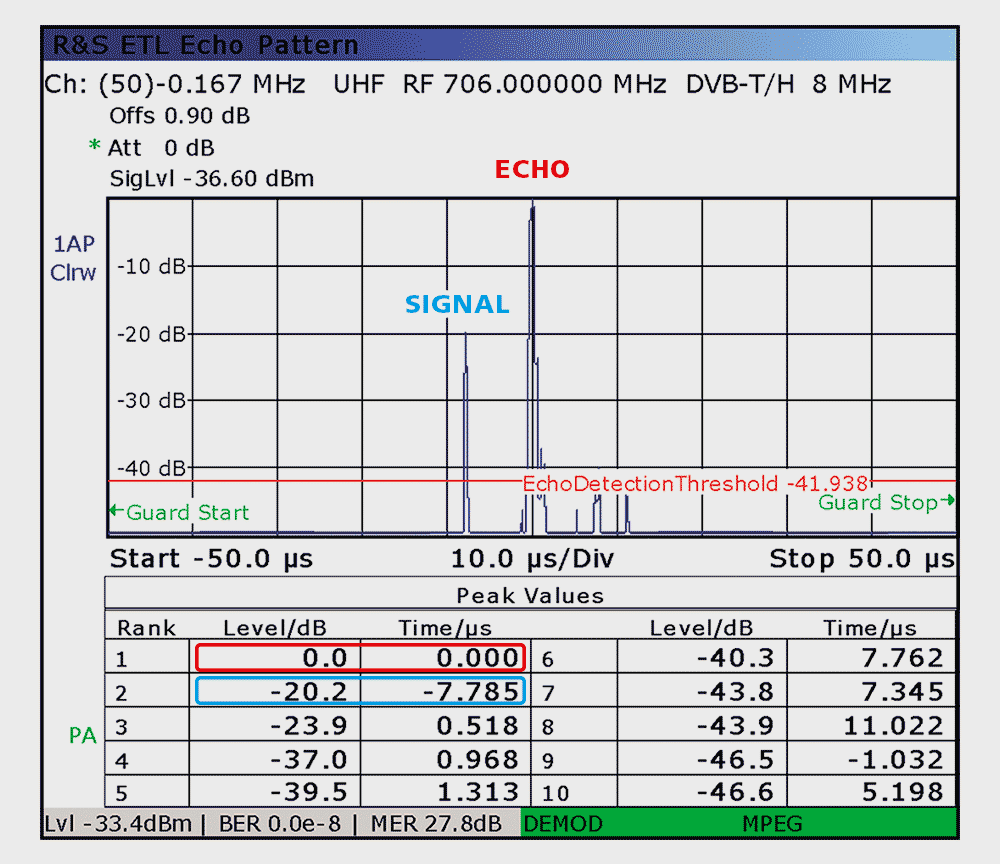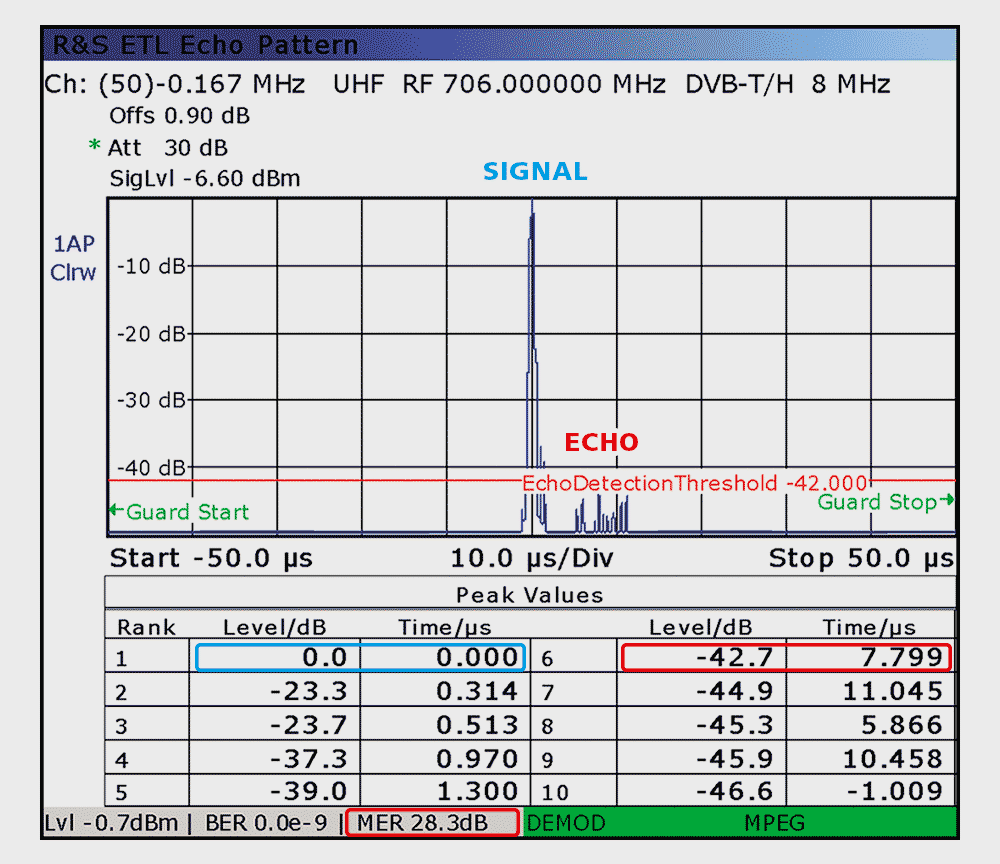ECHO CANCELLING
Our two very high-performance echo cancellers make TRedess gap fillers ideal for operation in single-frequency networks with limited isolation between the receiving and transmitting antennas. Two different versions are available: DAE and DEEC.

As general rule, it can be stated that a gap filler without echo canceller can be installed in a SFN (using the same input and output channel), but needs an echo signal level 10dB lower than the main signal.
A TRedess gap filler can be installed in locations where the echo signal level is up to 10dB (using DAE) or 30dB (using DEEC) higher than the main signal (recommended reference values).
Characteristics
Maximum Gain Range: DEEC (-30dB) & DAE (-15dB)
Cancelation window: DEEC (3+16 windows up to 31μs) & DAE (0-8μs)
Features: DEEC (Doppler Cancellation & Spectrum Amplitude Equalization)
Advanced Features
Digital Adaptive Equalizer
The DAE echo canceller is indicated to be used under moderate echo conditions, supports a 10dB gain margin level and performs spectrum equalization.
In addition to cancelling the echo produced by the coupling between the transmitting and receiving antenna, it is able to cancel any echo of the input signal whose delay with the main beam is between 0 and 8 microsegundos.
Thus, the echo canceller circuit allows correcting the distortions in amplitude of the input signal of the gap filler when they are caused by multipath propagation, in the case of rays that are within the cancellation window.
The DAE echo canceller performs the spectrum equalization in the entire cancellation window.


Advantages & Benefits
Doppler Enhanced Echo Canceller
The Doppler Enhanced Echo Canceller can suppress Doppler effect and echoes with greater gain margin, giving a better MER performance
Output MER > 29dB for a 20dB gain margin (with input MER > 35dB)
DEEC is also including the Spectrum Amplitude Equalization (patented by TRedess EP1555769A2, ES2274659, ES2297976) that is not just correcting the distortion produced at the output band pass filters (lineal precorrection), but it is also compensating the amplitude distortions of the incoming RF off air input-signal
For the cancellation of an echo 24dB higher than the main signal provides an output MER > 24dB.


